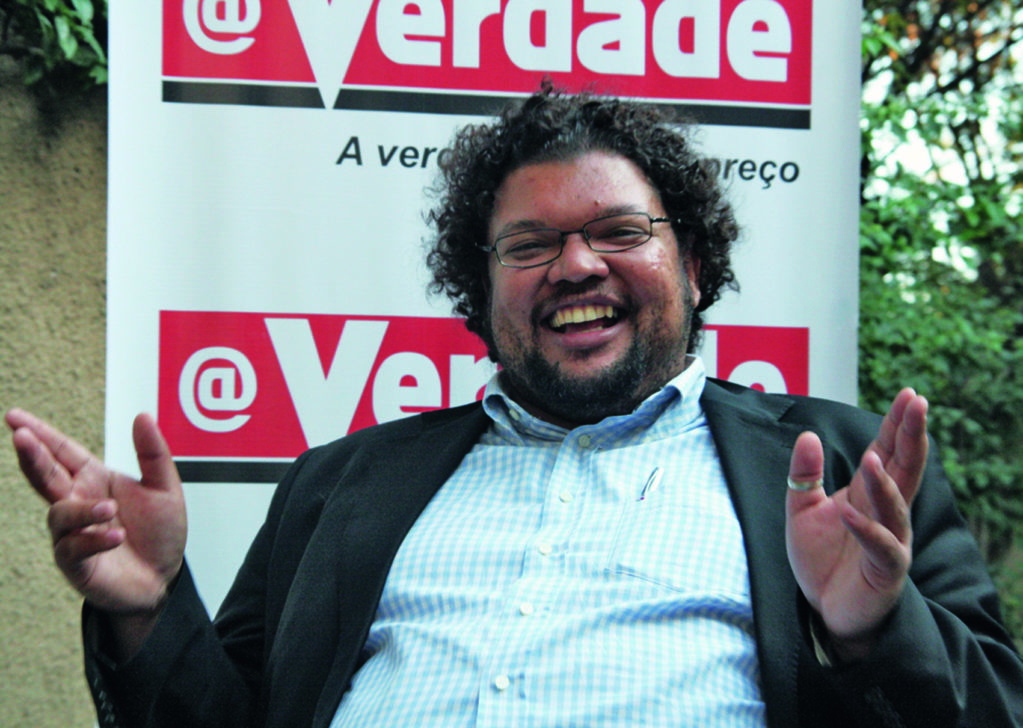It’s Friday morning, just after 8AM. A blanket of clouds fills the sky over a hot and humid morning in Mozambique’s capital, Maputo. On the pavement of Martires da Machava Avenue, everyone wants to get a newspaper but there are not enough to go around. Near the entrance to the yard, a knot of people tussle over a diminishing pack of newspapers.
A few minutes later, an old man dressed in a grey suit pulls up in a silver Range Rover Sport to jump out and grab his newspaper.
This happens every Friday because in Maputo, everyone wants to know. Verdade, which means the truth in Portuguese, is a free newspaper in more ways than one. It is a newspaper that often criticizes and upsets the authorities.
On this particular Friday, the paper publishes comments written by readers on a wall outside the Verdade offices, saying the people are not happy the president of the Democratic Movement for Mozambique, Daviz Simango, won the municipal elections.
Erik Charas, an electrical and mechanical engineer turned entrepreneur, started Verdade six years ago, which appears to be flourishing in a world where newspapers are dying. Verdade is Mozambique’s best read newspaper.
Loading...
Charas believes that Verdade can be a tool of change in his country’s fight against poverty.
“I thought I’d do greater good for my country than contributing to the bottom line of a company,” says Charas.
Unlike many developed countries where information flows like water, in Mozambique newspapers are expensive and scarce.
Verdade skirts politics and concentrates on the issues of the people: electricity prices; crime; HIV/AIDs and bread subsidies. It receives about 5,000 SMSes a month for a section that focuses on sex and health. The paper also touches on entertainment, nightlife and lifestyle in Maputo.
What also makes this newspaper popular is that it publishes Facebook comments from its readers.
Charas is an unlikely newspaper baron. After leaving his engineering job, he went on to teach at a university in Mozambique before spending nine years at the Graça Machel Foundation.
He left the foundation to try and fail as an entrepreneur. His stint at the foundation was successful and he was signing million-dollar cheques for the projects it ran. He left without having any plan whatsoever.
He launched his own company with various sub-companies within it, including infrastructure, telecoms, finance and transportation. He founded Verdade in 2008 with around $500,000 that he had raised from previous business ventures and private investments.
Verdade appeared to be an outlandish idea, but exploited a loophole in the market left by official and government newspapers, which are not popular with the people.
When it was launched, Charas says the goal was to reach around 50% of the literate population in six years, but sights had to be lowered. There are roughly 12 million people in Mozambique who can read and write. However, according to Charas, Verdade is read by a mere million people, 10 times more than any other official newspaper in Mozambique.
Back at Martires da Machava Avenue, workers distribute newspapers from a garage at the back of a house where 10 journalists work. Verdade workers hand out around 5,000 copies from the pavement outside. Fifty drivers deliver the paper across the country using bright yellow txopelas (tuk-tuks) in Verdade branding. About 2,000 copies are delivered in Nampula; Quelimane receives about 1,000; Pemba 200 and 100 in Bilene. About 1,300 newspapers are flown to Chimoio and Inhambane.
In some of these cities, the paper is distributed on street corners and bus stops.
It hasn’t all been smooth sailing for this popular newspaper. In 2013, Verdade saw sales dropping and experienced a loss of 20% in advertising renewals.
“A lot of our renewals say they got calls from officials saying ‘oh you can’t advertise in that paper—it gets critical’,” says Charas.
The print run was cut from 50,000 to 20,000.
“We want to print more papers for the rural areas, rather than for the city dwellers who have internet and can access the newspaper using their phones,” he says.
As for the future? Charas says they would like to associate Verdade with advertisements that people trust and do not give a false message. The 32-paged newspaper has almost no advertisements. Charas says newspaper ads will only get the thumbs up once they have gone through screening for truthfulness in its message.
Charas says he would only like to associate the newspaper with advertising that is truthful because readers trust and believe in the Verdade brand, which he says is linked to advertising.
“We are taking the trust our readers have put in us to a new stage. And you might ask us why… We’ve built a very strong brand that people trust and identify with… People look at it beyond just a newspaper title. It’s part of their voice and people contribute to it.”
“We’re taking responsibility of knowing that if I say that this water is good for you, people will totally trust that and move in mass towards one product or one process. We’ve seen that with the elections. We measured it. We went through the process of doing research about it. We worked with Paul Collier from Oxford University. They did research on the impact of information that gets carried through our newspaper [and the effect it] has on people’s actions and you could tell that [Verdade] really does…,” says Charas.
Another exciting venture is that the company bought a huge printer in northern Mozambique, which is part of the expansion for Verdade. The people in this part of the country often threaten Verdade employees, demanding the right to know the truth. The paper is currently printed in Nelspruit, South Africa.
Despite the harassment to advertisers and nearly losing revenues through advertising that could force the newspaper to shut down, Charas says Verdade will not go down without a fight.
“If we have to sink while telling the truth, so be it,” he says.
Loading...
